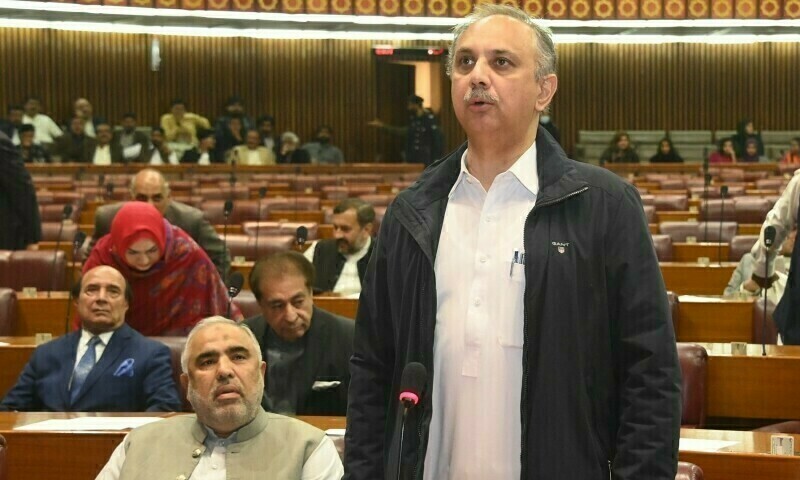In a critical address to the National Assembly, Pakistan Tehreek-e-Insaf (PTI) Secretary-General and Leader of the Opposition, Omar Ayub Khan, condemned the newly unveiled federal budget for the fiscal year 2024-25. He characterized the budget as a product of deceit, attributing all economic figures and surveys to falsehoods. Referring to the finance minister as an “economic hitman,” Khan asserted that the budget does not serve the nation’s best interests and questioned its credibility.
The budget, proposed by the Pakistan Muslim League-Nawaz (PML-N)-led coalition government, aims to achieve a challenging tax revenue target of 13 trillion rupees, intending to secure a new bailout deal with the International Monetary Fund (IMF). Finance Minister Muhammad Aurangzeb presented the revenue targets, amounting to a near 40% increase from the current year, aligning with analyst expectations. The total spending outlined in the budget amounts to 18.87 trillion rupees.
In his address to the National Assembly, Khan raised concerns about the adverse impact of the budget on the country, emphasizing the significance of upholding the rule of law to attract investors. He also highlighted the importance of consensus-building, citing the IMF’s recommendation to engage all stakeholders in the budget negotiation process.
Khan pointed out the government’s alleged failure to address rising unemployment and inflation rates, as well as a decline in per capita income. Additionally, he criticized Prime Minister Shehbaz Sharif’s anti-corruption pledges, highlighting corruption allegations against the Sharif family and asserting that the current government perpetuates corruption.
During a Senate session, PTI lawmaker Ali Zafar expressed scepticism about the budget’s efficacy in light of the country’s political polarization. He attributed the budget’s imposition on the people to the Election Commission of Pakistan (ECP), challenging its legitimacy. Zafar even went as far as predicting potential revolutionary repercussions due to the heavy taxation proposed in the budget, drawing historical parallels to tax-induced unrest in other countries.
The opposition’s strong objections and forewarnings about the budget’s implications underscore the contentious nature of the fiscal policies and their potential socio-political impact in Pakistan.
















